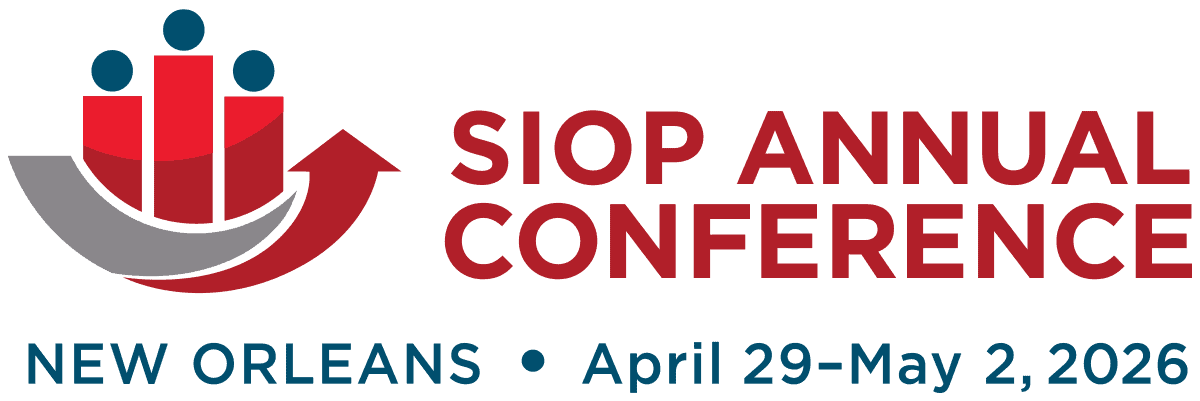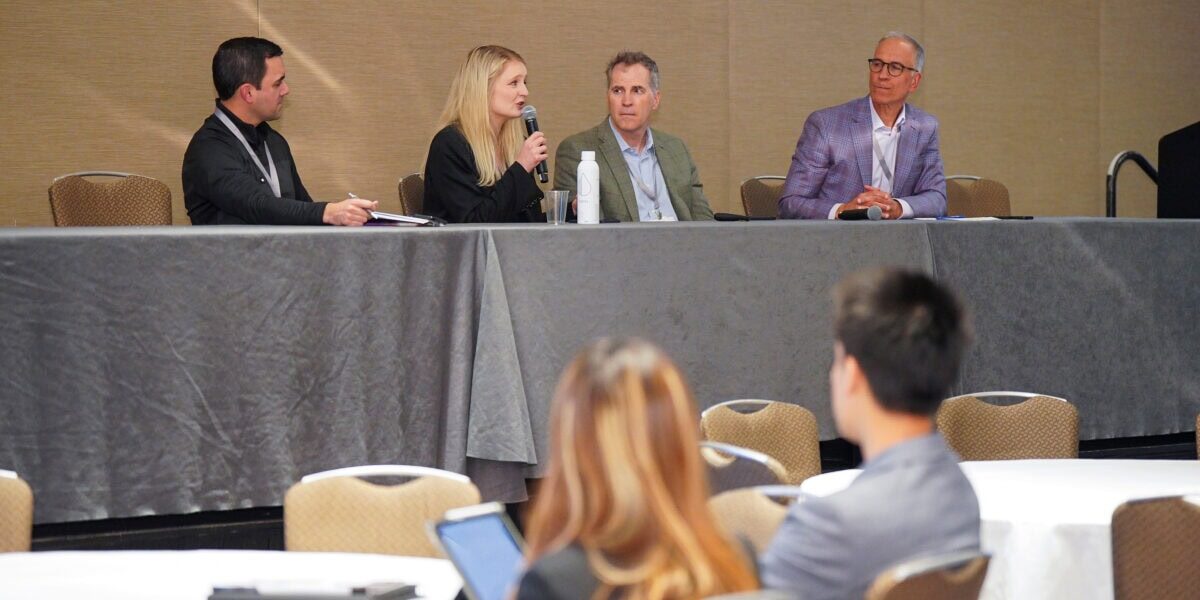Overview from the Program Chair
I would like to announce the release of the 2026 Society for Industrial and Organizational Psychology (SIOP) Conference Call for Proposals. The conference will take place Wednesday, April 29 through Saturday, May 2 (with an opening plenary and top posters session during the evening of Wednesday, April 29). The submission deadline for session proposals is 5 p.m. ET, Wednesday, October 8.
The SIOP Annual Conference is the premier and largest scientific meeting of professionals in industrial-organizational (I-O) psychology in the world. I have been a presenter each year since my first SIOP in 2002 and have the honor of serving as your Program Chair for the 2026 SIOP Annual Conference. Although the conference changed a lot between 2002 and 2026 (e.g., it has gotten larger and we now have conference apps and PowerPoint presentations rather than printed programs and transparency slides), the good parts have remained the same. What I like most about the SIOP conference is the breadth of the program, both in terms of focus and topics. It is one of the few conferences that mixes both academics and practitioners and attendees can often find multiple presentations for every topic area covered by I-O psychology. As an attendee, it is a great event to learn about new research and emerging practices in the field, update yourself on recent developments across I-O psychology, and meet other professionals in I-O psychology (including past classmates and coworkers and the big names whose articles you read in graduate school). As a potential presenter and a peer reviewer, the SIOP submission process allows you to develop yourself as a researcher, writer, reader, and hopefully as a presenter (if your submission is accepted).
This year, the Program Committee is continuing many of the changes that were implemented last year. We will continue to use the new CTI conference platform (which was launched for the 2025 conference) for receiving proposal submissions, signing up peer reviewers, and conducting the peer review process. As was done last year, all sessions will be held in person in New Orleans; there will not be any virtual or hybrid presentations. In addition, everyone who submits a SIOP proposal will automatically be asked to sign up to be a peer reviewer as part of the submission process.
Although the Call for Proposals and the program building process will be very similar to last year, we are also planning some incremental changes for the 2026 SIOP Conference:
- We have updated the content areas for SIOP submissions. The new list of content areas has been shortened from 31 to 14. Rest assured that no areas have been removed from consideration for submissions; however, the scope of the content areas has been broadened by combining previous content areas. The purpose of this change was two-fold. First, the previous list was becoming out of date and was in need of modernization to reflect recent years’ submissions. Second, having a shorter and more manageable list will help us to more easily create a balanced program and schedule and make it easier for attendees to find content areas in the conference app.
- We plan to continue improving the scheduling of sessions to minimize the number of time conflicts for sessions with the same content area and to try to keep sessions with the same content areas near one another (to minimize the need for attendees to run from session to session).
- I am planning to experiment with holding office hours during the submission period to provide an overview of how to use the submission site, pointers for the submission process, and to answer your questions. I am also available via email at Program@siop.org.
- We plan to increase the physical space for poster sessions, so that attendees can more easily move around and visit different posters.
- We want to continue having a breadth of focus and topics in the 2026 SIOP Program. We are hoping to create a balanced program that represents the different content areas and session types so that attendees who work in different content areas (e.g., leadership, selection) and settings (e.g., industry or academia) will have sessions of interest to them. I encourage potential presenters to be creative when brainstorming ideas for submissions. My hope is that the 2026 SIOP Program will have sessions on both current hot topics (e.g., artificial intelligence) but also classic I-O content (e.g., job satisfaction and job analysis).
Putting together a high-quality program is not an easy task and I need your help with the process. All SIOP members are invited to submit a proposal for the 2026 SIOP Annual Conference. Please consider submitting your recent research as a poster or part of a symposium, or by preparing a panel discussion, master tutorial, or alternative session. We especially need help with reviewing the approximately 1,500 proposals we expect to receive. In recent years, our reviewer pool has been declining and we want to ensure that we have a high-quality peer review process. Every SIOP member is encouraged to serve as a peer reviewer, even if they are not planning to attend SIOP. Reviewing is a great way to learn about recent advances in the field. Because acceptance decisions rely nearly entirely on reviewer ratings, we need quality peer reviews and more reviewers. There will be a separate solicitation for peer reviewers who are not submitting a proposal in the coming weeks.
As you prepare your proposals, please refer to the information in the 2026 SIOP Call for Proposals. There are a few highlights I want to remind you about. When submitting proposals, speaker and non-speaking contributor roles will need to be assigned. The Rule of Three (see ) states that each individual can only be a speaker on three SIOP submissions (regardless of whether the submissions are ultimately accepted or not). This count is based on the number of sessions that each individual is listed as a speaker instead of as a non-speaking contributor. An individual could be a first author on a submission but not be a speaker. SIOP student members may submit a proposal; however, their proposal must have at least one speaker who is a non-student member (this rule does not apply to posters). Poster and IGNITE sessions are 50 minutes long. Other submissions can be either 50-minute or 80-minute sessions. Because there are more 50-minute slots in the program schedule, your chances of acceptance are higher if you submit a 50-minute session proposal. Please make sure that you double check the list of authors you entered into the system and the list in your APA formatted citation. Finally, if you submit a poster, please make sure you remove all identifying information (e.g., Authors and Company in file properties) to ensure a masked review.
In closing, the following 2026 SIOP Call for Proposals provides information that will help you prepare proposals for the 2026 SIOP Annual Conference. I strongly encourage all SIOP members to participate in the program process by working on proposals, reviewing proposals, and attending the conference. I look forward to seeing you in New Orleans next spring.
Jeffrey M. Cucina (Program@siop.org)
2026 SIOP Program Chair
Note: The views expressed in this letter are those of the author and do not necessarily reflect the views of U.S. Customs and Border Protection or the U.S. Federal Government.


